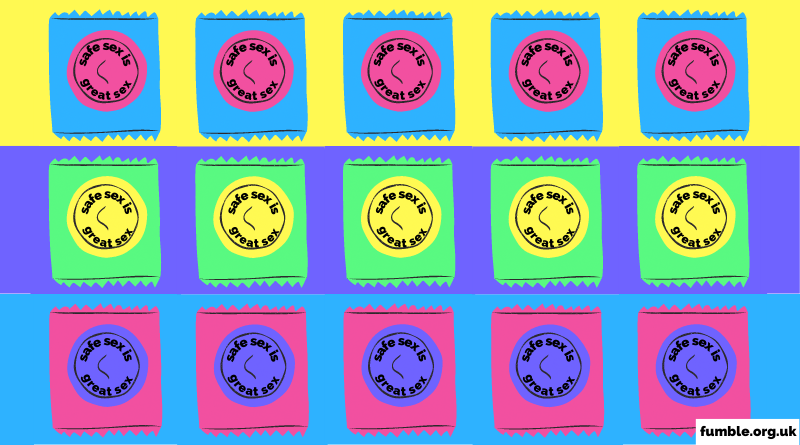Outercourse
You’ve probably heard of intercourse when it comes to sex, so what’s outercourse?
Outercourse probably isn’t a term that you’ve heard too often, but it’s certainly something a lot of us will want to know more about.
What is outercourse?
You’re more likely to have heard the word ‘intercourse’ when it comes to sex, but even that can feel like an oddly formal and outdated word to use. It’s generally assumed that intercourse (or sex) is penis-in-vagina (PIV) sex. There are actually lots of different ways to have sex! And outercourse includes lots of these ways.
Outercourse is non-penetrative sex (or ‘outer sex’ as it is sometimes known). It’s any sexual action that doesn’t include penetrative sex, whether that’s vaginal, anal or oral. We go into more detail here.
How do I have outercourse?
Outercourse includes lots of different types of sexual intimacy: cuddling, mutual masturbation, frottage (dry humping), genital-genital rubbing, a foot/hand job, an erotic massage, grinding, and even just kissing.

For a lot of people, it can be an introduction to arousal and exploring each other’s bodies. You may want to try some types of sexual intimacy, but not penetrative sex. That’s okay, and very common. It’s important to listen to yourself and what you’d like to try.
For some, outercourse may count as ‘foreplay’. For others, this is sex. We’ve put foreplay in quotation marks because this can be a problematic idea: it says that all the other types of sexual intimacy aren’t as important or enjoyable as penis-in-vagina sex, which is labelled as the ‘main event’. Just like we said at the beginning, there are so many different ways to have sex! It’s not just foreplay vs PIV sex. Regardless of this, for everyone, outercourse can be about learning what you do and don’t like, what does turn you on, and what doesn’t.
Consent!
Consent is really important when we’re thinking about any type of sexual intimacy. You should never pressure anyone into any type of sexual action, whether that’s kissing or PIV sex. It’s also worth checking in with yourself about whether you want to have sex or be sexually intimate with someone. Whether you’re ready for sex is up to you, everyone goes at different paces. We know that it can feel really complicated to say no to someone, especially if you have feelings for them. We also know that sometimes the pressure can feel like it’s coming from ourselves; there can be this idea of ‘normal’, which suggests how often, who with and how we ‘should’ be having sex. There’s no such thing as a ‘normal way to have sex’! But this inner conflict can still be difficult to feel. If you’re struggling with feeling pressure around having sex, reach out for support. You don’t have to manage this alone.
Outercourse is also considered by some people as a birth control method or a type of contraception. This is because it doesn’t involve penis-in-vagina sex, so there’s no risk of pregnancy. But this doesn’t protect you from sexually transmitted infections (STIs), so we always recommend using condoms or dental dams.

In sum, outercourse is all about finding out what arousal and pleasure means for you. Sexual pleasure is so much more than PIV sex!
Other support
Read more
Last Reviewed 8 March 2023
Image Credit: Sinitta Leunen via Unsplash







